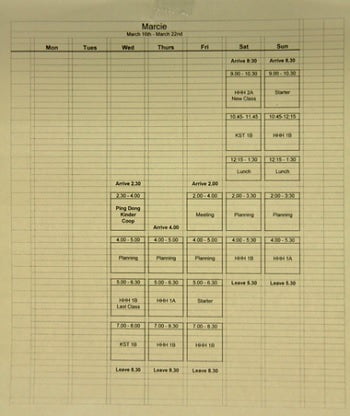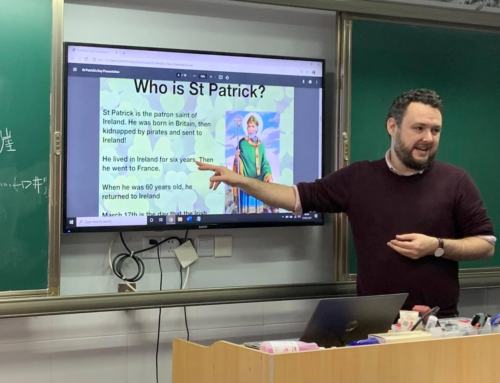1. A fair deal
 Let’s start with an obvious point. You might be flying halfway around the world to go and teach in China. You might have spent hundreds of bucks on flights. You might have sold everything you own to start up somewhere new. After all that upheaval, the last thing you want to do is to sign a contract for a company that’s going to screw you financially and leave you destitute for the next 12 months.
Let’s start with an obvious point. You might be flying halfway around the world to go and teach in China. You might have spent hundreds of bucks on flights. You might have sold everything you own to start up somewhere new. After all that upheaval, the last thing you want to do is to sign a contract for a company that’s going to screw you financially and leave you destitute for the next 12 months.
Make sure that whatever their offer is it’s appropriate for the city. Living off 7,000RMB a month in a second or third tier city is a good wage– you can live very comfortably and . Living off 7,000 a month in Shanghai or Beijing? Not so much. Do your research and make sure you’ve asked about extras too. Housing allowances, end of contract bonuses, flight allowances, performance bonuses all add up and can count for a lot. A school which pays you 8,000RMB with none of those things might not be as good an option as a school which includes them but pays 6,500RMB.
2. Specifics
 You also need to find out exactly how many hours you’re going to be teaching each week. 30 hours a week? Sounds great! But wait, is that 30 hours in the classroom? What about planning time? Am I timetabled to work 09:00 to 21:00 five (or god forbid, 6) days a week even though I’m only teaching for 30 hours? Is my timetable set in stone? Do I always work the same hours?
You also need to find out exactly how many hours you’re going to be teaching each week. 30 hours a week? Sounds great! But wait, is that 30 hours in the classroom? What about planning time? Am I timetabled to work 09:00 to 21:00 five (or god forbid, 6) days a week even though I’m only teaching for 30 hours? Is my timetable set in stone? Do I always work the same hours?
Definitely ask about where you’ll be teaching too. Some schools will have you teaching at local schools all over the city with classes of up to 60 students. The better ones should keep you at one location close to your apartment and teaching classes of less than 20 students at a time (hopefully close to 15).
3. A working visa
This is a biggie. Make absolutely sure that a prospective school is going to arrange a working visa for you. This is an essential part of living and working in China. Without the correct documentation you will count as an illegal immigrant and could be deported at any time. Finding out about the school’s visa application process is one thing you absolutely must check when you ask for…
4. Teacher’s contact details
Make sure you ask a prospective employer for contact details of other teachers who currently work there. This is the litmus test. If the school has nothing to hide they shouldn’t have a problem with this. If they don’t want you to contact their teachers, ask yourself, what don’t they want me to know? These people will tell you if there’s a strong community amongst the teachers and how supportive the school is.
5. Free Chinese classes
 Every ESL school worth its salt should provide Chinese classes for free. What better way to help you get up and running in China than with linguistic confidence? Taking those first few steps towards communicating in your new city will make your start so much more enjoyable. Along with providing
Every ESL school worth its salt should provide Chinese classes for free. What better way to help you get up and running in China than with linguistic confidence? Taking those first few steps towards communicating in your new city will make your start so much more enjoyable. Along with providing
6. Teacher training
 Coming to China with a 140-hour TEFL qualification under your belt is a great start but will only get you so far. Sooner or later you’re going to need guidance, support, advice. This should start from your first day. You should get training, orientations and inductions. You should also get reassurances that you’re not going to be thrown in the deep end and asked to teach on your first (jet-lagged) day.
Coming to China with a 140-hour TEFL qualification under your belt is a great start but will only get you so far. Sooner or later you’re going to need guidance, support, advice. This should start from your first day. You should get training, orientations and inductions. You should also get reassurances that you’re not going to be thrown in the deep end and asked to teach on your first (jet-lagged) day.
Then you need to think about the future. After a few weeks you’re going to need workshops and activity exchange seminars with other teachers. It’s the only way you’re going to develop as an ESL professional.
7. Privately owned, independently run, western managed
There are a lot of franchised training schools in China. These are schools that pay to use the name, branding and materials of a larger, corporately-managed group. The problem is, these schools don’t always have the same standards and duty of care that their parent company has. Franchised schools in China have a reputation for being poorly run, badly equipped and profit driven.
Instead, look around for schools that are privately owned and ideally have western management. Finding a school that is run (not owned) by western staff is really important. It’s not a guarantee of teaching nirvana but it really helps. For starters there’ll be no language barrier. Secondly, you hopefully won’t experience any culture shock whilst at work. Try to find a school that has a foreigner conducting the interviews if possible. If nothing else, they were at least in your shoes once before.

















Leave A Comment